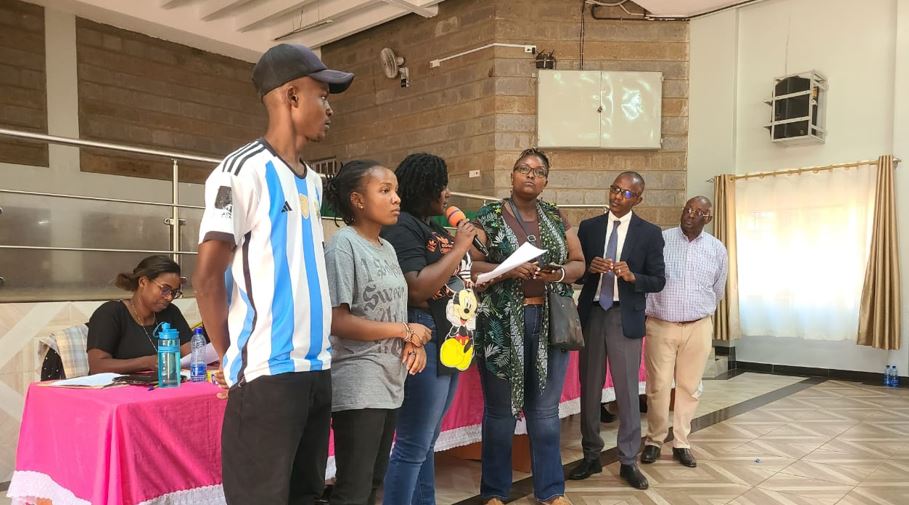Kenya’s community health promoters demand recognition and support through policy engagement
Policy engagement is essential for raising awareness and prioritizing care infrastructure and services. However, many caregivers lack the capacity to participate in governance processes, leaving their needs unrepresented. As a result, they remain trapped in a cycle of unpaid care and domestic work (UCDW), with limited opportunities to engage in social, economic, and political spaces, hindering their progress. To address this gap, WE-Care partner Youth Alive! Kenya (YAK) facilitated three sessions that empowered caregivers and domestic workers to amplify their voices in decision-making spaces and actively contribute to the budget-making process.

Community Health Promoters (CHPs) are a key pillar in providing primary care to underserved communities, yet their contributions often go unrecognized and unsupported. During a policy engagement session held on 14 February 2025 under the WE-Care project, participants explored the 5Rs framework as a foundation for advocating gender-responsive policies and investments in care infrastructure. Discussions centered on the CHP Bill of 2022, highlighting gaps in representation, financial support, and labor protections for CHPs, many of whom shoulder significant unpaid care responsibilities. Through active public participation, CHPs critically analysed the bill, culminating in a memorandum submission to the Senate, ensuring CHPs’ voices and the care agenda are reflected in legislative reforms.
The County Fiscal Strategy Paper (CFSP) is a critical stage in the county budget process, enabling citizens, including UCDW workers, to influence priorities, demand accountability, and advocate for investments that reduce the burden of care work. During both the webinar held on 14 February and physical sessions held on 17 February in Githurai, Kiambu County, youth, care and domestic workers through the solidarity network reviewed key components of the CFSP, including fiscal performance, revenue projections, priority sectors, and budget ceilings. Discussions highlighted gaps in funding for gender-responsive services, questioning unrealistic revenue targets and inadequate allocations for care-related infrastructure. Through interactive group work and policy analysis, participants strengthened their understanding of public finance processes and developed memorandums with key recommendations. This was successfully submitted, ensuring that care work considerations were formally integrated into the county’s budget discussions.
Photo shows representatives of the Care Solidarity Network, presenting care needs at the Public Participation Meeting. For more information, reach out to Lawrence Gatenjwa at lawrence.gatenjwa@youthalivekenya.org.
